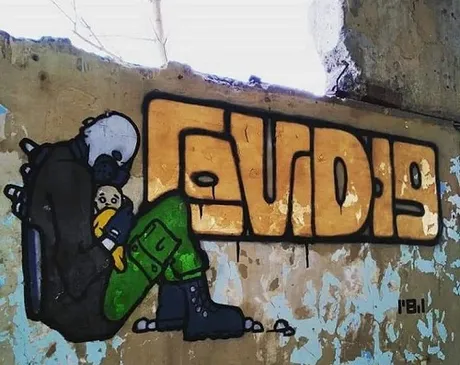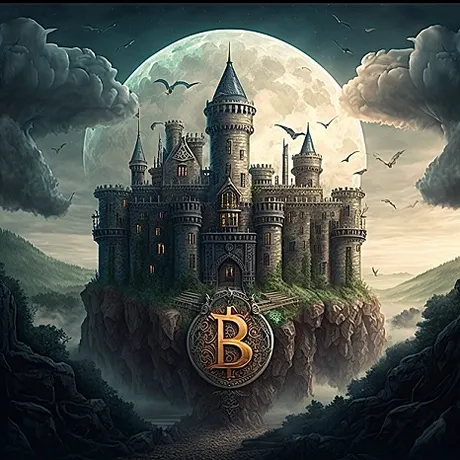
1000 ways to die
Living organisms can perish in the weirdest and stupidly subtle ways. If any organ fails it can die. If it gets sick it can die. If it gets cut it might die. Poison? Die. Too old? Dead. Lack of food and water: same story. Any little thing going wrong within the complex system can lead to death. This is not a bad thing. In fact this is how it seems to work by design on purpose.
Many people seem to believe that it should not work this way: That suffering, pain, and death should be mitigated at all costs. After all: none of us want to experience these things. Billionaires are running around trying to live forever and I'm not sure whether I'm impressed or embarrassed about everything going on during these crazy times.
Is it really a good idea for a bunch of old farts to never die and be in control of everything until the end of time? That sounds like a tragedy of epic proportions. Or maybe it's all just part of the journey of sentient intelligent life. Perhaps there is some kind of valid evolutionary path that involves immortality, even if a billion years of evolution is telling us otherwise.
It's also quite odd just how resilient life can be in certain situations. I listened to this podcast about Uruguayan Air Force Flight 571, a tale of survival, perseverance, and cannibalism. One of the survivors (after 72 days without food in freezing sub-zero temperatures) had a completely fractured skull from the initial plane crash. Not only that: he played a main-character role in the story and was directly responsible for the group's survival. Quite a crazy story, that.

Circle of life
While a life is fragile and can die for any reason, life itself as a whole is robust and basically can't be killed. Even if humanity's primary goal was to eradicate all life on the planet I honestly don't think we'd be up to the task. Even nuking the surface of Earth isn't really going to kill Gaia. Hell, it might even be a small setback in the grand scheme of things. Truly we know a lot less than we pretend to in terms of how this all works.
Life is decentralized
The reason why life is such a robust system is because it is inherently decentralized. Centralized systems can topple over from environmental change. A gust of wind blows over a house made of straw. Life adapts to change through the evolutionary process. Genetics are decentralized; Sexual reproduction is decentralized. Evolution is decentralized. The atomic family and tribes are decentralized. Earth's resources are distributed and decentralized. Even the weather itself is implicitly decentralized.
So what is the disadvantage of all this decentralization?
It's not all sunshine and rainbows! Being in crypto so long we already know the drawbacks of decentralization. Decentralization is quite inefficient and has trouble scaling. Decentralization is slow and creeping and takes a long time to get anything significant completed. In return for this inefficiency we are granted with security and robustness.
Luckily the boundaries are contained by access to resources.
While life itself is quite inefficient and slow, it can also expand exponentially given the right environment. Life does not have to be efficient in many respects because it has access to infinite energy by way of the sun. The sun's rays never stop shining, and plants are able to harvest that energy into something more useful for us meatbags. What a miracle that is! Or perhaps just all part of the plan.
If there are enough resources in an area (food/water/shelter) then life is guaranteed to explode exponentially within that area until those resources are depleted and must reach equilibrium. This can be a quite jarring process, and once again we see the parallels to crypto given the boom and bust cycles we see every 4 years.
What can crypto and digital expansion learn from all this?
There are a lot of similarities here we can draw conclusions from. While others look at things like the Dot Com bubble to make comparisons, and that seems like a good idea on paper, a centralized expansion is not comparable to a decentralized expansion.
Does crypto exist in a good environment for exponential expansion?
This is a pretty moot point considering the exponential expansion has been happening this entire time and only slows down during relatively small equilibrium pullbacks. The macro side still clearly shows exponential expansion, so thus we have to assume that this environment is quite good for crypto. Again, this makes sense, as the main product of crypto is one of trust, trustlessness, and self-sovereignty. When we look at the world it's quite obvious that the product and usecase is one of the most necessary and rare resources throughout a continually consolidated society.
Many think that USA and other governments cracking down on crypto makes this a bad environment, when exactly the opposite is true. We've already seen that without any pushback or resistance from the establishment that crypto loses all decentralization and turns into a centralized hunk of scam tokens. These projects are supposed to be purged through their own failures combined with the attacks coming from the current paradigm. It's all working as it should be, but many think otherwise because they are greedy, impatient, and ironically part of the problem.

Conclusion
Decentralization is a spectrum. A single living entity is quite centralized and efficient in many respects, while many of those same living entities competing for resources within a hostile environment lead to a complex decentralized meta. Crypto is quite akin to all of this, with the decentralized code and infrastructure trickling down into more and more centralized systems. The centralized systems are always more vulnerable (but also more efficient) than the more decentralized systems they are built atop.
We could learn a lot from a billion years worth of evolution rather than trying to compare this movement to events that have nothing to do with decentralization (like Dot Com and the stock market). It's easy to get sidetracked. Keep learning and keep stacking.
Return from A Life is Fragile; The Life is Robust to edicted's Web3 Blog
